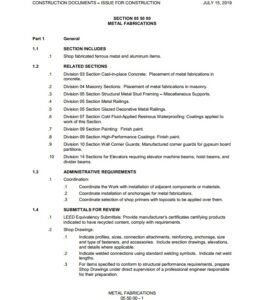Poorly written project specifications exponentially increase the likelihood of project derailment. These specs can be easily noted: the scope is not clear, there are no references to other spec sections, materials are not properly identified, there are redundant standards for the same activity, inspections and testing requirements omit the type and frequency, or even the acceptance criteria, etc.
Projects relying on poorly written or copy-pasted specs drain resources from all parties involved. Rarely specs are properly amended after the project goes for tender. Instead, the intent of the spec is typically challenged during the construction phase, and key players must dedicate hundreds of hours to prepare and respond to RFIs to figure out something that could have been properly defined before tendering.
On the other hand, proactive asset owners ensure that solid specs are prepared before tendering. Solid specs are tailor-made for each project and take into consideration all the project-specific variables. Although they may spend a few thousand dollars on the design stage, it pays off due to the avoidance of uncertainty, paperwork, and re-work induced by poorly written specs.
If meeting your project budget, schedule, and quality expectations are your top priority, having the spec reviewed by subject matter experts before tendering is the wisest approach.

